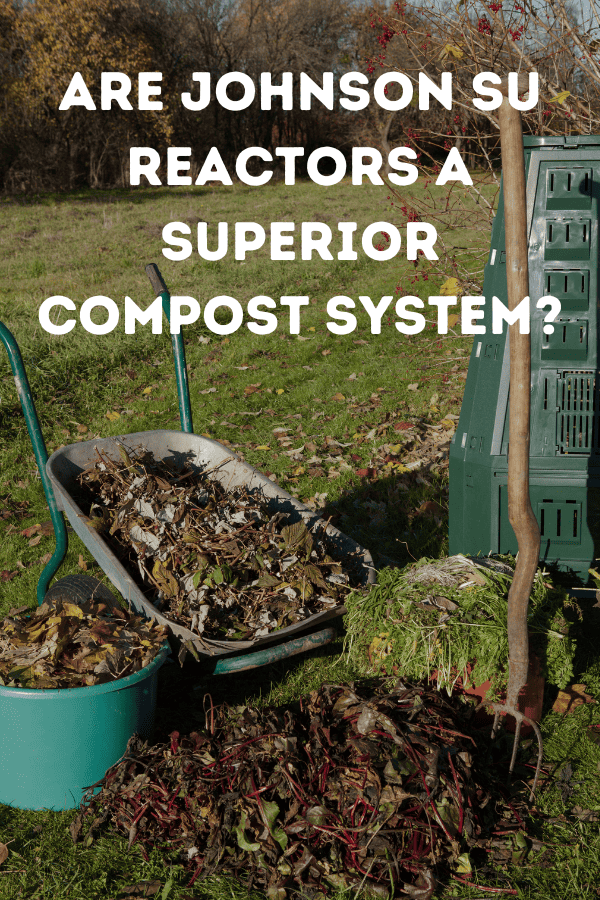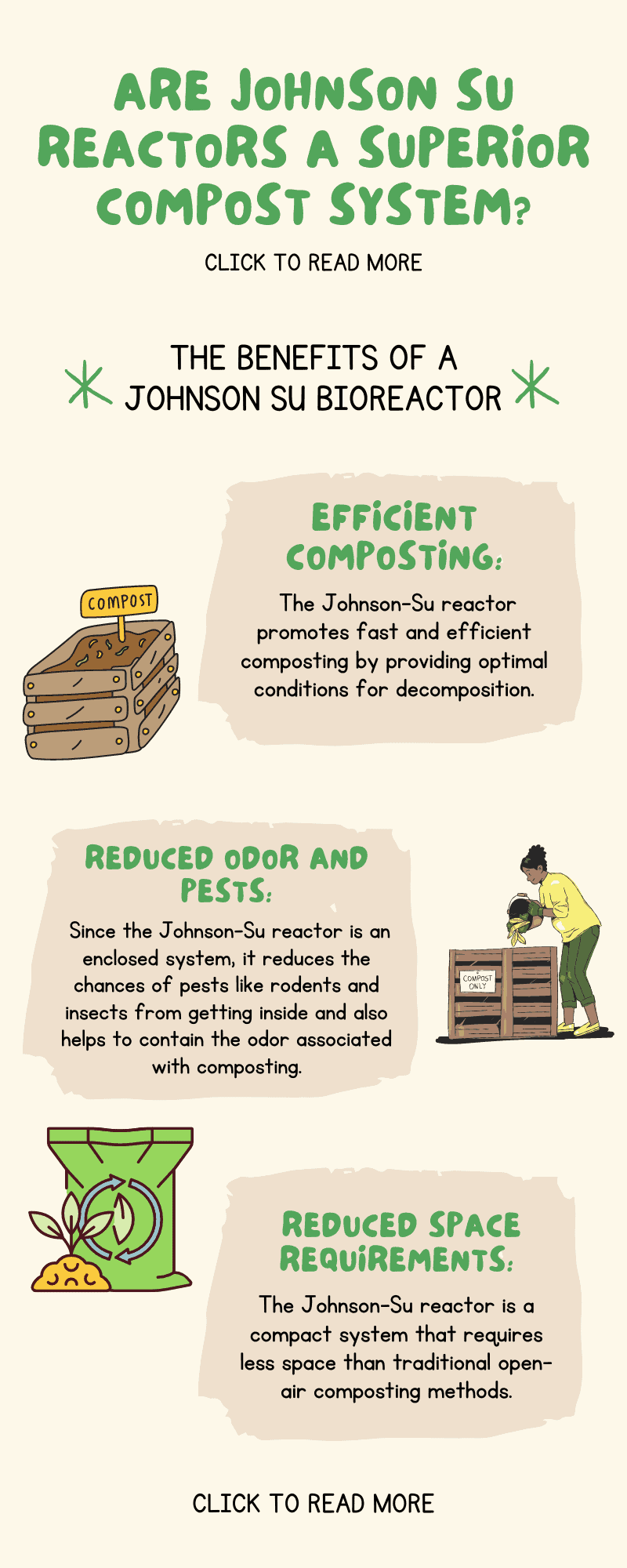
A Johnson Su bioreactor is a composting system that is designed to create "fungally-dominated" compost quickly and efficiently, without the need for regular turning or flipping of the compost pile. This system was developed by Dr. Elaine Ingham, who is a soil microbiologist and composting expert.
Bioreactor
There are several situations in which a bioreactor might be preferred over a compost pile:
Space limitations: Bioreactors can be designed to take up less space than traditional compost piles. This can be beneficial in urban areas where space is limited.
Controlling the composting process: Bioreactors can be used to precisely control the environmental conditions in which composting occurs. This allows for faster, more efficient decomposition and can result in a higher quality end product.
Reducing odors and emissions: Bioreactors can be designed to capture and treat odors and greenhouse gas emissions that are released during the composting process. This can be particularly important in densely populated areas or areas where odor complaints are common.
Johnson Su Compost System
The Johnson Su bioreactor utilizes a large container, such as a cylindrical wire mesh cage, filled with organic materials like leaves, twigs, and other plant matter. The container has a central core, made from materials like chicken wire or hardware cloth, which allows for the flow of air through the compost pile. This provides oxygen to the microorganisms responsible for breaking down the materials.
The Johnson Su bioreactor focuses on fungal-dominated compost, which is unique compared to other composting methods. Fungi play an important role in soil health and plant growth, and by creating compost that is high in fungal content, gardeners can improve the overall health of their soil and the plants that grow in it.
Overall, the Johnson Su bioreactor is a simple and effective method for creating high-quality compost for your garden or farm. It does not require excessive manual labor or turning of the pile.
The Benefits Of A Johnson Su Bioreactor
Embed this infographic on your site.

